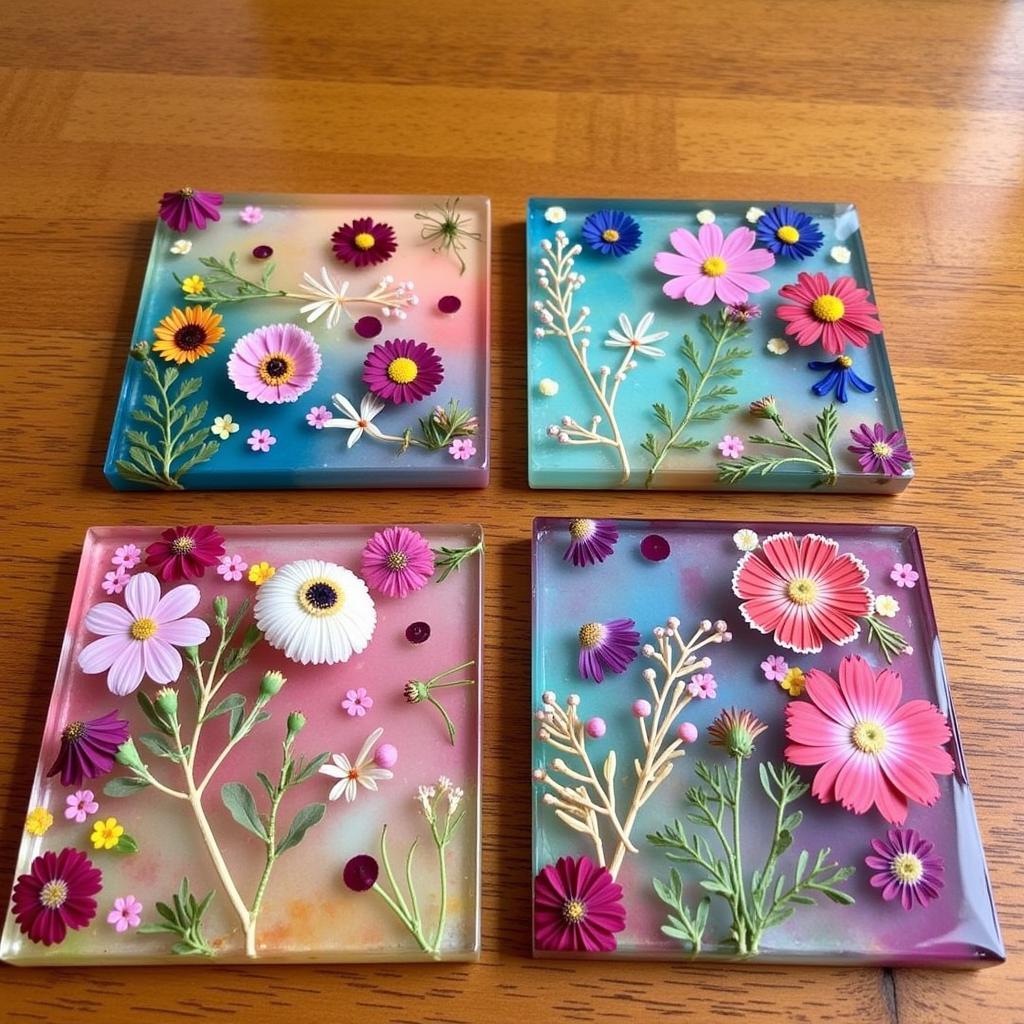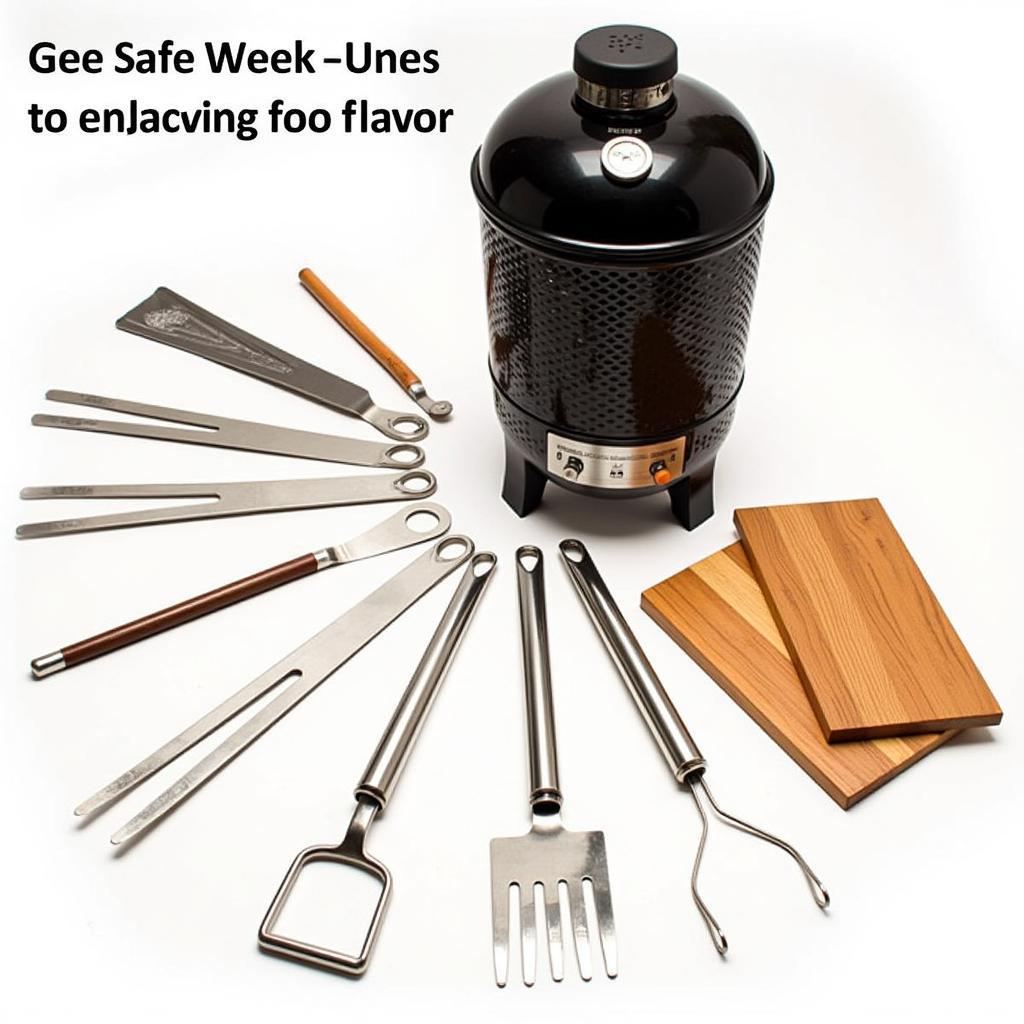UV resin is a versatile crafting material that’s gaining popularity for its ease of use and quick curing time. It’s used in jewelry making, casting molds, and various DIY projects. However, with its increasing presence in homes, a common question arises: Is Uv Resin Food Safe?
This comprehensive guide delves into the safety of using UV resin for food-related applications, helping you make informed decisions for your crafting and culinary endeavors.
Understanding UV Resin and Food Safety
Before we dive into the specifics, it’s crucial to understand what constitutes “food safe.” A food-safe material is one that, when it comes into contact with food, won’t transfer harmful chemicals that could compromise your health.
UV resin, in its uncured state, contains monomers and oligomers, which are potentially toxic if ingested. However, the curing process, where the resin hardens under UV light, plays a vital role in determining its food safety.
Is Cured UV Resin Food Safe?
The short answer is: not always. While the curing process does solidify the resin and lock most of the harmful components within its structure, it might not be 100% effective. Some resins may still leach small amounts of chemicals, especially when exposed to heat, acidic foods, or over prolonged periods.
Factors Affecting UV Resin’s Food Safety
Several factors influence the food safety of UV resin:
- Resin Type: Different UV resins have different formulations. Always check the manufacturer’s instructions and look for explicit mentions of “food-safe” or “FDA-approved” for food contact applications.
- Curing Process: Proper curing is essential. Insufficient curing can leave behind unreacted monomers, increasing the risk of leaching. Follow the recommended curing times and use a high-quality UV lamp.
- Intended Use: Consider the duration and type of contact with food. For instance, using a UV resin coaster for a short time might be acceptable, while storing food in a UV resin container is not recommended.
 Food-Safe Epoxy Resin for Coasters
Food-Safe Epoxy Resin for Coasters
Food-Safe Alternatives to UV Resin
If you’re looking for materials specifically designed for food contact, here are some safe alternatives:
- Food-Grade Epoxy Resin: This type of resin is formulated for food contact and is typically used for projects like cutting boards, serving trays, and countertops.
- Food-Safe Silicone: Flexible, heat-resistant, and readily available, silicone is ideal for molds used in baking or freezing.
- Glass and Ceramic: These materials are naturally inert and safe for food contact, making them reliable choices for kitchenware and servingware.
When in Doubt, Err on the Side of Caution
“When it comes to food safety and crafting materials, I always advise my clients to prioritize caution,” says Sarah Thompson, a certified food safety trainer. “Unless a product is explicitly labeled as food safe, it’s best to assume it’s not and choose alternatives.”
 Food Smoker Accessories: Safe Materials for Flavor
Food Smoker Accessories: Safe Materials for Flavor
FAQs About UV Resin and Food Safety
Can I bake with UV resin molds?
No, UV resin is not heat-resistant enough for baking. The heat can cause the resin to melt, warp, or release harmful fumes.
Is it safe to use UV resin for jewelry that might come into contact with food?
It’s best to avoid wearing UV resin jewelry while eating or handling food. Accidental contact might be unavoidable, but prolonged or direct contact is best avoided.
What happens if I accidentally ingest UV resin?
If you suspect ingestion of UV resin, contact your local poison control center or seek medical attention immediately.
Can I seal UV resin to make it food safe?
While some sealants might claim to create a food-safe barrier, there’s no guarantee of their effectiveness. It’s always safer to use materials explicitly designated as food safe for direct food contact.
Are there specific UV resin brands that are food safe?
Currently, very few UV resin brands offer explicitly food-safe formulations. Always check the product labels and manufacturer’s information for any claims of food safety.
Conclusion
While UV resin offers exciting possibilities in the crafting world, its food safety remains a grey area. Unless a resin is explicitly labeled as food safe, it’s best to err on the side of caution and avoid using it for applications involving direct or prolonged contact with food. Explore the readily available food-safe alternatives like food-grade epoxy resin, silicone, glass, and ceramic to ensure the well-being of yourself and your loved ones. If you’re unsure about a material’s suitability for food contact, consult with a food safety expert or reach out to the manufacturer for clarification.
Remember, when it comes to food safety, it’s always better to be safe than sorry. For more information about food-safe materials and resources, explore our other articles on food grade epoxy resin. For any inquiries or assistance with your projects, our team is here to help. Contact us at:
- Phone: 02437655121
- Email: minacones@gmail.com
- Address: 3PGH+8R9, ĐT70A, thôn Trung, Bắc Từ Liêm, Hà Nội, Việt Nam.
Our customer support is available 24/7 to assist you.